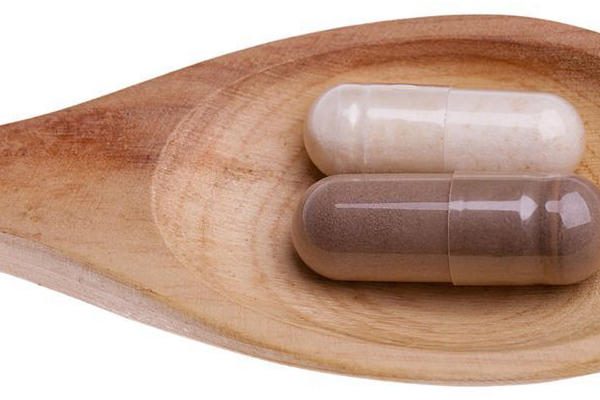Recent research demonstrates the dramatic effect exertion has on the body’s glutamine reserves. For example, athletes doing intensive anaerobic exercise showed a 45% drop in plasma glutamine compared to pre-exercise levels. When the same athletes continued aerobic exercise for 10 days, their plasma glutamine dropped by 50%. Some still had depressed glutamine levels even six days after recovery from the exercise3. This suggests that they need more glutamine than their diets provided and their liver could manufacture. Athletes who overstress their muscles (without adequate time for recovery and/or without glutamine replenishment) may be at increased risk of infection and often recover slowly from injuries.
In vitro studies, as well as experiments in animals, have shown glutamine to be one of the most effective substrates for gluconeogenesis. Glutamine is the major gluconeogenic precursor in the kidney. In contrast to alanine, the carbon skeleton of glutamine originates mainly from protein and other amino acids and may therefore provide more to the new glucose pool than alanine. Tracer studies revealed that nearly twice as much of the carbon in glucose is transferred from protein derived glutamine than from alanine. Infusion of large amounts of glutamine (28 g/4 h) resulting in 3-fold increased plasma glutamine concentrations caused a 7-fold increase in glucose formation without changes in plasma insulin and glucagon levels. These results provide evidence that, in humans, glutamine may act both as a substrate as well as a modulator of its metabolism to glucose. In contrast, in mice genetically predisposed to become overweight and develop hyperglycemia, the administration of glutamine as part of a high-fat diet reduced body weight (BW) and attenuated hyperglycemia and hyperinsulinemia. This glucose-lowering effect of glutamine may be in relation to the known effect of glutamine on fat metabolism such as inhibition of fatty acid oxidation and lipolysis and is possibly involved in the attenuation of insulin resistance induced by fat.
Therefore, it was hypothesized that glutamine may be useful as an anti obesity and antidiabetic agent in prediabetic and diabetic subjects. This assumption was recently confirmed in intensive care unit patients, because parentally administered glutamine (in the form of alanyl-glutamine) prevented worsening of insulin sensitivity in multiple-trauma patients. A possible explanation of these results would be that glutamine improved the sensitivity of adipose tissue to insulin, decreased lipolysis, and subsequently improved glucose metabolism.
An oral glutamine dosage of 7.5 g for 3 weeks, administered for preventing mucositis/stomatitis of breast cancer patients receiving anthracycline-based chemotherapy, did not cause any side effects but reduced the incidence of significant oral mucositis. In another study, patients with advanced or metastatic cancer receiving fluorouracil/leucovorin in chemotherapy were supplemented with glutamine at 30 g/d for 15 days for preventing mucositis/stomatitis. In this study, a reduction of mucositis/stomatis was also observed without any side effects attributable to glutamine supplementation. Similarly, 30 g oral glutamine given daily to colorectal cancer patients receiving oxaliplatin reduced the incidence and severity of peripheral neuropathy and also did not cause any side effects. In a mixed patient group (cancer or intestinal failure) on home total parenteral nutrition due to colon resection or inflammatory enteropathy, the parenteral infusion of glutamine at a dose of 0.285 g/kg body weight (equivalent to 20 g/70 kg body weight) for 4 weeks resulted in the elevation of liver enzymes in 3 patients. Those abnormities subsided after discontinuation of the glutamine-total parenteral nutrition administration. Interestingly, during the course of the study, plasma levels of glutamine did not increase.
Therefore, it seems questionable whether the increase in liver enzymes was due to glutamine or to the concomitant overload of fat application or glucose supply. Both factors increase liver enzymes under certain conditions. Interestingly, the three patients received a rather high level of total energy (2888, 2574, and 2314 kcal5, respectively), which, rather than the glutamine supplementation, may have triggered the deterioration of hepatic metabolism.
Recently, glutamine utilization has been linked to functional activities of cells of the immune system such as proliferation, antigen presentation, cytokine production, nitric oxide production, superoxide production and phagocytosis. Many of these functional parameters appear to be directly or indirectly dependent upon the intracellular supply of NADPH. The initial pathway of glutamine metabolism, which is common to all cells of the immune system, can generate NADPH from NADP+, thus providing a possible link between high rates of glutamine utilization and the beneficial effect on the many diverse functions of immune cells. Glutamine supplementation of diet or parenteral nutrition has resulted in beneficial clinical outcomes. In the future, it may be possible to manipulate glutamine metabolism in vivo. This approach may provide novel treatment for a growing list of diseases in which glutamine utilization may directly or indirectly contribute to disease pathogenesis such as acquired immunodeficiency syndrome, sickle cell anemia, obesity and diabetes.
A study published in the medical journal Lancet, examined 20 hospitable patients and found that supplementing with L-glutamine decreased intestinal permeability. Another study published in the British Journal of Surgery found that l-glutamine benefits ulcerative colitis and inflammatory bowel disease.
Glutamine also plays an important role in the following areas:
- Improves gastrointestinal health because it is a vital nutrient for the intestines to rebuild and repair.
- Helps heal ulcers and leaky gut by acting as a Band-Aid for protection from further damage
- Is an essential neurotransmitter in the brain and helps with memory, focus and concentration
- L-glutamine improves IBS and diarrhea by balancing mucus production which results in healthy bowel movements
- Promotes muscle growth and decreases muscle wasting
- Improves metabolism and cellular detoxification
People with kidney disease, liver disease or Reye’s syndrome should not use glutamine. Many elderly people have reduced kidney function, and may need to reduce the dose of glutamine.
Glutamine is different from glutamate (glutamic acid) monosodium glutamate and gluten. Glutamine will not cause symptoms (headaches, facial pressure, tingling or a burning sensation) associated with sensitivity to MSG. People who are gluten-sensitive can use glutamine without problems.
